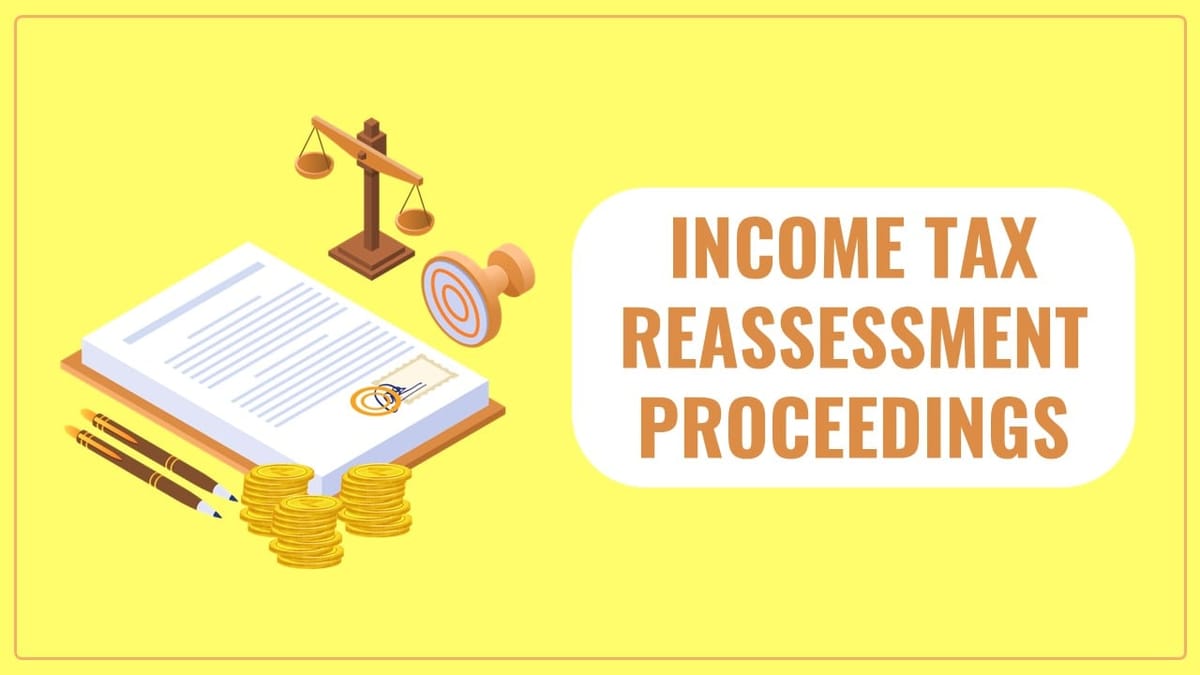The High Court of Delhi has quashed the Income Tax Reassessment Proceedings Made Without Application of Mind.
Reetu | Dec 5, 2023 |

High Court Quashes Income Tax Reassessment Proceedings Made Without Application of Mind
The High Court of Delhi in the matter of SHOURYA INFRASTRUCTURE PVT. LTD Vs. INCOME TAX OFFICER has quashed the Income Tax Reassessment proceedings made without application of Mind.
SIPL is in the real estate business, including constructing, buying, and selling immovable properties. SIPL was incorporated in 2006. Upon the petitioner filing its Return of Income (ROI) for the AY in issue, the AO took it up for scrutiny under Section 143(3) of the Act.
SIPL was issued various notices, which were accompanied by questionnaires. These notices are dated 02.09.2013, 14.10.2013 and 23.10.2013. Via these notices, among other things, information was sought concerning, broadly, the following aspects:
(i) The nature of the business in which SIPL was engaged.
(ii) The main objects of the business.
(iii) Information about the land sold and the amount received as consideration.
(iv) Details of directors.
(v) Copies of balance sheets and extracts from accounts.
SIPL was required to furnish information about the aforesaid aspects, including a transaction relating to the sale of land, qua which it had received consideration of Rs. 1,51,00,000.
SIPL indicated to the AO that although it had purchased the land, the funds were provided by a group company named Shourya Towers Pvt. Ltd. [hereafter referred to as “STPL”]. According to SIPL, this arrangement was the subject matter of a Memorandum of Understanding (MoU)/agreement dated 02.03.2007 [hereafter referred to as “MOU/agreement”] entered between itself and STPL. SIPL had also emphasized that under the MoU/agreement, it was empowered to sell the land if it was not used for any project for two to three years. Thus, as per SIPL, once the sale took place, it claimed as profit an amount calculated at the rate of Rs. 1,00,000 per acre and remitted the balance to STPL. SIPL conveyed to the AO that the amount remitted to STPL was claimed as expenditure, and the resultant profit earned, i.e., Rs. 1,73,002, was offered for levy of tax.
Despite detailed scrutiny, the AO served a notice dated 28.03.2018 on the petitioner’s Chartered Accountant (CA) concerning the AY in issue.
It is no one’s case, not even the AO’s case, that SIPL had not executed the MOU/agreement with STPL. The burden of the AO’s order is that the sale of the subject land was a capital account transaction and, therefore, Section 50C of the Act was applicable. Thus, Mr Agrawal’s reliance on the observations made in the Phool Chand Bajranglal case has no applicability. The facts therein are entirely distinguishable. That was a case wherein the appellant/assessee had claimed that he had borrowed a certain sum from an entity. Accordingly, the money borrowed was shown as a liability in the balance sheet. The appellant/assessee also claimed that the money had been borrowed and returned in cash, although interest was paid via cheque/bank draft. Based on this broad assertion, the AO allowed a deduction of the interest claimed by the appellant/assessee to the lender company. However, the AO had doubts about the genuineness of the loan transaction, and therefore, he wrote to the AO of the lender company.
The AO of the lender company informed his counterpart that the director of the lender company had confessed that it was a dummy entity and had not advanced any loan to any person. This letter conveyed that the so-called lender company lends money to different companies to launder their unaccounted money. It is against this backdrop that the court sustained the action taken to reopen the reassessment proceedings. Given this backdrop, the Court observed that it was not a case where the AO sought to draw fresh inference, which it could have raised when he framed the original assessment order regarding the loan transaction based on the material placed before him. Therefore, the fresh information in that case, as observed by the Court, exposed the falsity of the statement made on behalf of the appellant/assessee when the original assessment order was framed.
As mentioned above, the facts that obtained in the Phool Chand Bajranglal case are quite different from those obtained in the instant case.
Thus, the coram has opinion that for the reasons given above, this is not a case in which the reassessment proceedings ought to have been triggered against SIPL.
Accordingly, the impugned order dated 13.11.2018 is quashed
For Official Judgment Download PDF Given Below:
In case of any Doubt regarding Membership you can mail us at [email protected]
Join Studycafe's WhatsApp Group or Telegram Channel for Latest Updates on Government Job, Sarkari Naukri, Private Jobs, Income Tax, GST, Companies Act, Judgements and CA, CS, ICWA, and MUCH MORE!"